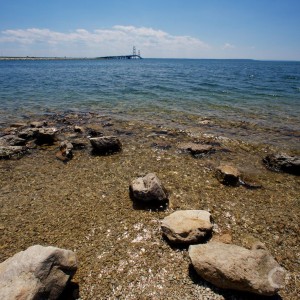The Stream, April 13: Manila Water Privatization Questioned
The Global Rundown
A U.S. Congressional committee is questioning the International Finance Corporation’s role in water privatization in Manila. Water scarcity is expected to increase at three-quarters of small islands around the world by mid-century, while a prolonged drought in Guam could contaminate much of the island’s water with salt. Food security conditions continue to deteriorate in Ethiopia as a severe drought persists. The Apalachicola-Chattahoochee-Flint river basin was named the most threatened in the United States. U.S. environmental regulators are not doing enough to safeguard groundwater from oil and gas wastewater injection wells, a government report found.
“I am increasingly uneasy with water resource privatization in developing countries, and do not believe that the current ring-fencing policies separating the investment and advising functions of the IFC are adequate.” –U.S. Representative Gwen Moore, in a letter to the World Bank president that outlines concerns about a public-private partnership that privatized water and sewage management in Manila, the capital of the Philippines. (Associated Press)
By The Numbers
219 districts Number in Ethiopia that are suffering a humanitarian emergency due to poor spring rainfall amid the country’s worst drought in 50 years. Aid agencies say conditions on the ground continue to deteriorate, placing millions of people at risk from hunger. Reuters
3/4 Proportion of the world’s small islands that are expected to become more arid by 2050, according to a study published in the journal Nature Climate Change. Climate Home
Science, Studies, And Reports
The Apalachicola-Chattahoochee-Flint river basin, shared by Alabama, Florida, and Georgia, was named the most threatened river in the United States this year by environmental organization American Rivers. The report cited outdated water management as the primary cause of the river basin’s troubles. Its waters are currently at the center of a court battle pending before the U.S. Supreme Court. National Geographic
The United States Environmental Protection Agency is failing to adequately oversee and collect information about state actions to protect underground water sources from oil and gas wastewater injection wells, according to a report by the Government Accountability Office. The report found that, as of 2013, there were more than 176,000 of these class II wells in the country. The Desert Sun
On The Radar
A long-term, five-year drought in Guam could render nearly two-thirds of the territory’s daily tap water production salty, according to a study by the United States Geological Survey. The findings come as Guam enters a dry spell, and as the United States plans to open a new Marine Corps base on the island. Pacific Daily News
A news correspondent for Circle of Blue based out of Hawaii. She writes The Stream, Circle of Blue’s daily digest of international water news trends. Her interests include food security, ecology and the Great Lakes.
Contact Codi Kozacek





Leave a Reply
Want to join the discussion?Feel free to contribute!